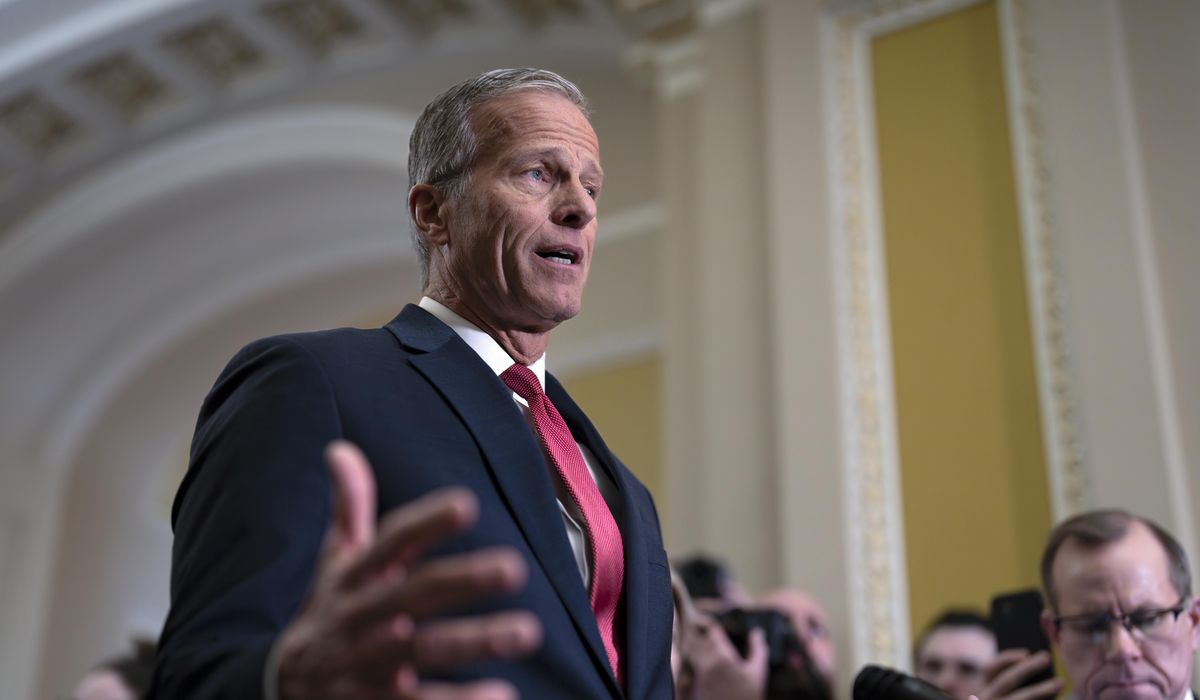


The Senate early Friday morning adopted a budget resolution that outlines parameters for subsequent legislation to fund border security, immigration enforcement and defense needs.
The budget was adopted on a 52-48 vote, with Sen. Rand Paul, Kentucky Republican, joining all Democrats in opposition.
The final vote came after a vote-a-rama in which senators could offer unlimited amendments to the budget resolution. The vote-a-rama began just before 7 p.m. Thursday and ended at 4:45 a.m. Friday, lasting almost 10 hours.
The vast majority of amendments came from Democrats seeking to attack GOP priorities, including ones not outlined in the underlying budget reconciliation instructions.
Those instructions call for up to $345 billion in funding for border security, immigration enforcement and the national defense and offsetting spending cuts that would be packaged together in a subsequent budget reconciliation package.
The reconciliation process allows Republicans to avoid the threat of a Democratic filibuster and pass their priorities on a simple majority vote.
Democrats argued throughout the budget debate that Republicans are slashing spending on health care, education and other programs low- and middle-income Americans rely on to subsidize tax cuts for the wealthy.
“Republicans’ North Star is singular, unchanging: They’re trying to give their billionaire buddies a tax break and have you, the American people, American families, pay the cost,” Senate Minority Leader Charles E. Schumer, New York Democrat, said.
But despite the Democrats’ relentless messaging, the Senate budget does not include instructions for legislation to cut taxes.
Republicans in the upper chamber prefer to save that for a second reconciliation effort, despite the House GOP proceeding with a separate budget plan that would package the national security funding and tax cuts together, along with sweeping spending cuts and a debt limit increase.
President Trump has endorsed the House budget, which the lower chamber plans to vote on next week. But he has not stood in the way of the Senate advancing its budget, which Republican leaders have acknowledged is a backup plan in case the House measure fails.
While Senate Republicans were mostly unified around their budget, many are agnostic as to whether the party advances Mr. Trump’s priorities in one reconciliation bill or two.
Mr. Paul was the only Republican to vote against the budget, saying it lacked a plan to cut spending amid rising deficits.
The budget resolution provides instructions for committees to find at least $5 billion in savings, although Senate GOP leaders say they intend to find enough to offset the $342 billion in new spending they anticipate authorizing.
“None of that is listed in the budget,” Mr. Paul said of the promised offsets.
He offered an amendment to readjust the spending cut floor to $1.5 trillion, the same as laid out in the House budget resolution. It failed 24-76, with 29 Republicans joining all Democrats in opposition.
Mr. Paul said his colleagues talk a big game about being fiscally conservative and backing the effort from Elon Musk and the Department of Government Efficiency to slash spending across the federal government but have yet to show they are willing to back that up with codifying legislation.
“Ultimately all the talk of the savings is ephemeral,” he said. “It isn’t real until Congress has the courage to vote on it.”
• Lindsey McPherson can be reached at lmcpherson@washingtontimes.com.
